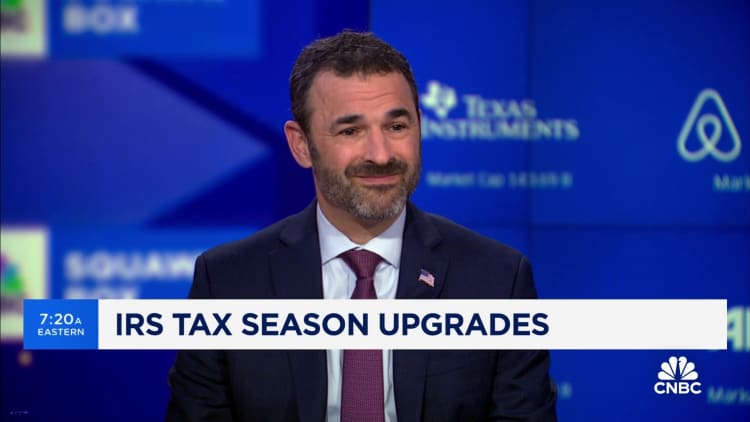
[ad_1]

File by the deadline to avoid penalties, interest
While April 15 is the federal deadline for most taxpayers, filers in Maine and Massachusetts have until April 17. There are also automatic extensions for some taxpayers impacted by natural disasters.
But if you skip the tax filing deadline and owe a balance, you can expect IRS penalties and interest.
For failure to file, the IRS charges 5% of your unpaid taxes per month or partial month, capped at 25% of your balance due. The late-payment penalty is 0.5% per month or partial month, with a maximum fee of 25% of unpaid taxes. Interest is based on the current rates.
If you’re missing tax forms, the tax deadline is your last chance to file an extension, which pushes the filing deadline to Oct. 15. But the “extension to file is not an extension to pay,” warned certified financial planner Sean Lovison, founder of Philadelphia-area Purpose Built Financial Services.
Extension to file is not an extension to pay.
Sean Lovison
Founder of Purpose Built Financial Services
According to the IRS, those who can’t pay taxes by the deadline have options. They can apply for a payment plan, or “installment agreement,” to pay their balance over time.
Two-thirds of taxpayers can expect a refund
If you don’t file, you could be giving up a refund, Werfel said on “Squawk Box.”
“Two out of every 3 taxpayers that are going to file by tonight’s deadline are actually owed a refund,” he said. “So it’s in your interest to get your taxes done.”
As of April 5, the IRS processed nearly 67 million refunds, with an average payment of $3,011, a 4.6% increase from last April’s refund, the agency reported Friday.
“Don’t walk down to the post office,” Werfel said. “File electronically, select direct deposit and we will get you your refund in under 21 days.”
How to file your taxes for free
This season, taxpayers have several ways to file federal taxes for free and there’s still time to use a couple of digital options.
Most Americans qualify for IRS Free File, which offers free guided tax prep software from several partners. The adjusted gross income limit is $79,000, but each partner has different eligibility requirements.
“It’s a product that we’re very proud of,” Tim Hugo, executive director of the Free File Alliance previously told CNBC. “We just wish more people knew about it.”
This season, millions of taxpayers also qualify for IRS Direct File, a free tax filing pilot program from the agency. Currently, Direct File is open to certain filers in Arizona, California, Florida, Massachusetts, Nevada, New Hampshire, New York, South Dakota, Tennessee, Texas, Washington and Wyoming.
Some 100,000 taxpayers successfully filed returns with Direct File, as of April 15, according to a Treasury official. Werfel said an announcement about the program’s future is coming “later this spring” but the “results so far have been encouraging.”

[ad_2]
Source link
